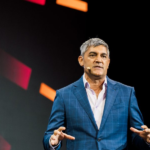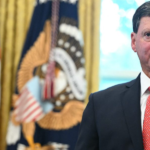Good morning. Don’t envy Jensen Huang.
“Nvidia is squeezed between Washington and Beijing,” she says. “Washington has indicated, ‘Go forth and sell [Nividia’s] H20 chips,’ but Beijing seems to be pressuring domestic firms not to buy.” That’s the short-term problem. The long-term problem may be tougher. She thinks that as China steadily improves its home-grown tech, Nvidia may not lead there at all.
Nvidia is, of course, subject to U.S. policy, but what will that be? “If you think success is about exporting American tech and the values that go with American tech, then selling more chips is a good thing. But if the goal is to constrain Beijing’s AI system from making large capability advances, then selling high-end chips seems like not a great idea,” Brandt says. “There’s a rampant debate here in Washington right now about how to balance those equities and preserve U.S. interests.” Huang is, you guessed it, caught right in the middle.
A broader problem goes beyond China. It derives from the Trump administration’s offer to let Nvidia export H20 chips to China in return for 15% of the revenue. “If we want to be able to sell American technology abroad, which I think we really do, then it’s best when these companies are credibly viewed as independent actors,” she says—that is, not in partnership with the government. “It’s not just about selling in China. The more there is the perception that firms are not necessarily independent actors, that could potentially impact their ability to sell elsewhere.”
Put it all together, and Brandt says Huang “is playing a complicated multi-tier game”—one where every move he makes is under the microscope.









